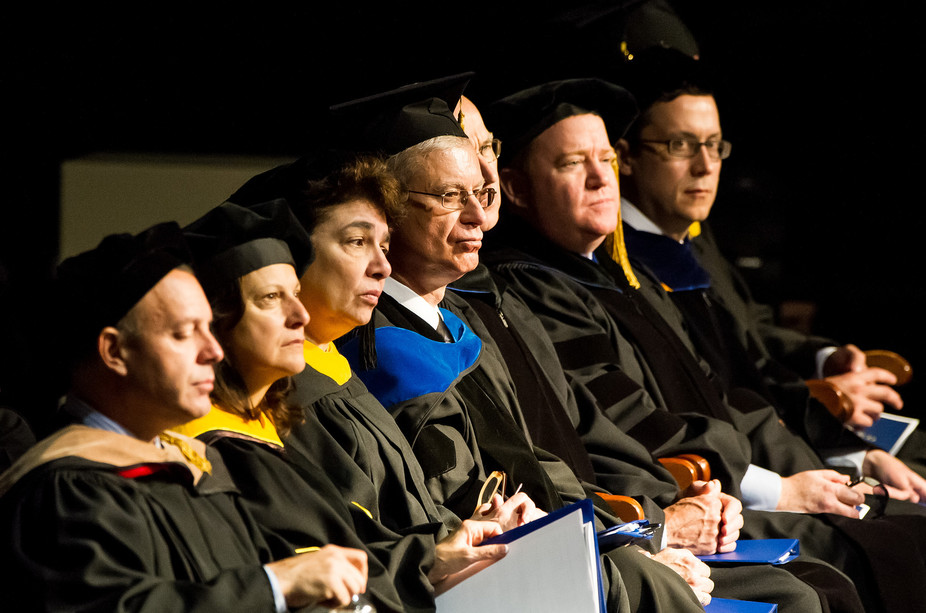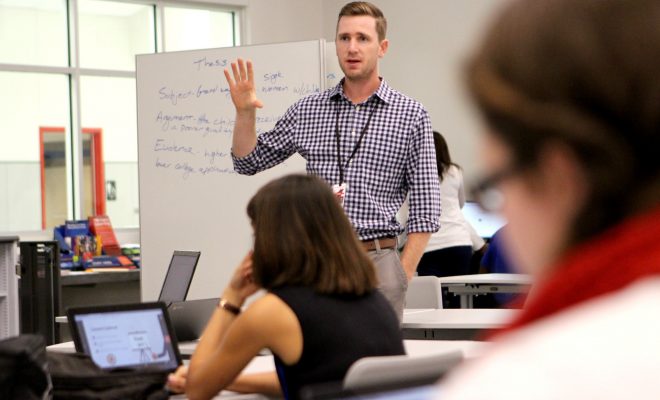Philosophies of Education: 2 Types of Teacher-Centered Philosophies

Teacher-Centered Philosophies are essential for the longevity of education and the continued influence of teachers in the classroom. In this article two teacher-centered philosophies will be reviewed which are essentialism and perennialism.
Teacher-centered philosophies are those that transfer knowledge from one generation of teachers to the next. In teacher-centered philosophies, the teacher’s role is to impart a respect for authority, determination, a strong work ethic, compassion for others, and sensibility. Teachers and schools succeed when students prove, typically through taking tests, that they have mastered the objectives they learned.
Essentialism is the educational philosophy of teaching basic skills. This philosophy advocates training the mind. Essentialist educators focus on transmitting a series of progressively difficult topics and promotion of students to the next level or grade. Subjects are focused on the historical context of the material world and culture, and move sequentially to give a solid understanding of the present day. This philosophy stresses core knowledge in reading, writing, math, science, history, foreign language, and technology. The tools include lecturing, memorization, repetition, practice, and assessment.
William C. Bagley (1874–1946) was one of the most influential advocates of essentialism. Bagley believed that education was not supposed to change society but to preserve it. At a conference for the
American Association of School Administrators in 1938, Bagley “urged schools and educators to create what we know today to be vigilant in sticking to the core curriculum”.
In addition to Bagley’s influence, four other occurrences have since revitalized the essentialism movement by mandating global competition. The first was the launching of Sputnik by the Soviet Union in 1957. Next, a report titled A Nation at Risk was issued by the National Commission on Excellence in Education under the Reagan administration in 1983. The report claimed that our society was being “eroded by a rising tide of mediocrity that threatens our very future [as] a nation and a people” and blamed a lack of the basic essentials in education: math, reading, writing, science, and technology.
The report did little, however, to spark change, and A Nation Still at Risk, written by Jeanne Allen, was issued in 1998. The last occurrence in the promotion of essentialism was the passage of the No Child Left Behind Act (NCLB) of 2005. NCLB imposed a set of laws at the federal level to monitor basic student achievement. Schools that failed to meet the required standards of achievement were flagged as needing assistance or remediation and were liable to lose their federal aid or to be forced to cease operations without further improvements.
Essentialism is a common model in U.S. public schools today. A typical day at an essentialist school might have seven periods, with students attending a different class each period. The teachers impart knowledge mainly through conducting lectures, during which students are expected to take notes. The students are provided with practice worksheets or hands-on projects, followed by an assessment of the learning material covered during this process. The students continue with the same daily schedule for a semester or a year. When their assessments show sufficient competence, they are promoted to the next grade or class to learn more difficult material. For each class, the school board has approved a specific curriculum, which must be taught, although how it is taught is left to the teacher’s discretion.
Perennialism is the educational philosophy that the importance of certain works transcends time. Perennial works are those considered as important and applicable today as they were when they were written, and are often referred to as great books. Common examples include Melville’s Moby Dick, Shakespeare’s Macbeth, Dickens’s Great Expectations, and Dante’s Inferno. Perennialism is sometimes referred to as “culturally conservative,” because it does not challenge gender stereotypes, incorporate multiculturalism, or expose and advocate technology, as would be expected of contemporary literature.
The goal of a perennialist education is to teach students to think rationally and develop minds that can think critically. A perennialist classroom aims to be a closely organized and well-disciplined environment, which develops in students a lifelong quest for the truth. Perennialists believe that education should epitomize a prepared effort to make these ideas available to students and to guide their thought processes toward the understanding and appreciation of the great works, works of literature written by history’s finest thinkers that transcend time and never become outdated.
Perennialists are primarily concerned with the importance of mastery of the content and development of reasoning skills. The old adage “the more things change, the more they stay the same” summarizes the perennialists’ perspective on education. Skills are still developed in a sequential manner. For example, reading, writing, speaking, and listening are emphasized in the early grades to prepare students in later grades to study literature, history, and philosophy.
The Paideia Proposal, a book published in 1982 by Mortimer Adler, described a system of education based on the classics. This book inspired the school model referred to as the Paideia program, which has been, and still is, implemented by hundreds of schools in the United States. Teachers using the Paideia program give lectures 10% to15% of the time, conduct Socratic seminars for 15% to 20% of the time, and coach the students on academic topics the remaining 60% to 70% of the time. Socratic seminars are lectures in which the teacher asks a specific series of questions to encourage the students to think about, rationalize, and discuss the topic. Perennialist curricula tend to limit expression of individuality and flexibility regarding student interests in favor of providing an overarching, uniformly applicable knowledge base to students. Vocational training is expected to be the responsibility of the employer.
Understanding essentialism will enable you know and improve basic teaching skills and perennialism will allow you as a teacher to continue operating in the success of methods, concepts, and best practices that were used in education over time. So which teacher-centered philosophy works best for you?






